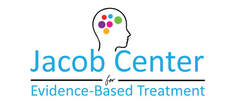Depression
Major Depressive Disorder is characterized by the occurrence of one or more Major Depressive Episodes (i.e., a period of at least 2 weeks during which there is depressed mood and/or the loss of interest or pleasure in activities, in addition to at least 4 other symptoms listed below)..
Common Symptoms of Depression include:
Depressive symptoms cause clinically significant distress or impairment in social, occupational, or other important areas of functioning.
Common Symptoms of Depression include:
- Depressed mood most of the day, nearly every day, as indicated by either subjective report (e.g., feels sad or empty) or observation made by others (e.g., appears tearful). In children and adolescents, the mood may be irritable rather than sad.
- Markedly diminished interest or pleasure in all, or almost all, activities most of the day, nearly every day (as indicated by either subjective account or observation made by others.
- Significant weight loss when not dieting or weight gain (e.g., a change of more than 5% of body weight in a month), or decrease or increase in appetite nearly every day. In children, consider failure to make expected weight gains.
- Insomnia or hypersomnia nearly every day.
- Psychomotor agitation or retardation nearly every day (observable by others, not merely subjective feelings of restlessness or being slowed down).
- Fatigue or loss of energy nearly every day
- Feelings of worthlessness or excessive or inappropriate guilt nearly every day.
- Diminished ability to think or concentrate, or indecisiveness, nearly every day (either by subjective account or as observed by others).
- Recurrent thoughts of death (not just fear of dying), recurrent suicidal ideation without a specific plan, or a suicide attempt or a specific plan for committing suicide.
Depressive symptoms cause clinically significant distress or impairment in social, occupational, or other important areas of functioning.
Providing Evidence-Based Treatment for Obsessive-Compulsive Disorder (OCD), Tourette's Disorder/Tics, Trichotillomania, Body Dysmorphic Disorder (BDD), Hoarding, Skin Picking/Excoriation Disorder, Anxiety Disorders, and Phobias. Boca Raton office is easily accessible from Palm Beach County & South Florida (Jupiter, Palm Beach Gardens, West Palm Beach, Lake Worth, Boynton Beach, Delray Beach, Boca Raton, Lighthouse Point, Deerfield Beach, Pompano Beach, Ft. Lauderdale, and Miami).
Copyright © 2015-2024 Marni L. Jacob, Ph.D., LLC
Jacob Center for Evidence-Based Treatment
7900 Glades Road, Suite 615, Boca Raton, FL 33434
(561) 290-9080
Copyright © 2015-2024 Marni L. Jacob, Ph.D., LLC
Jacob Center for Evidence-Based Treatment
7900 Glades Road, Suite 615, Boca Raton, FL 33434
(561) 290-9080

